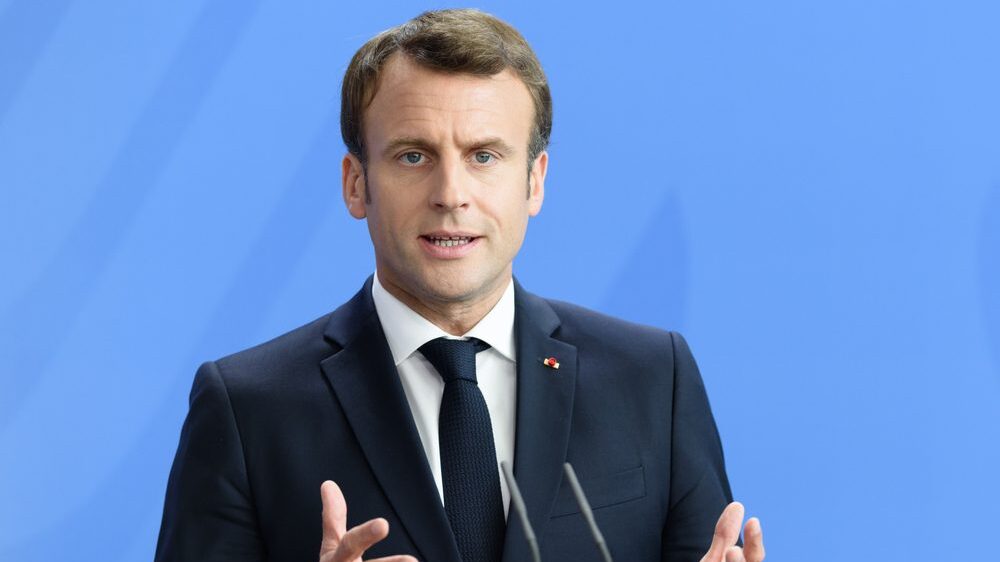
Emmanuel Macron.
Photo: photocosmos1 / Shutterstock.com
Emmanuel Macron has not exactly made himself the most popular public figure in Europe by being at the centre of efforts to bring Russia and Ukraine to the negotiating table. Polish Prime Minister Mateusz Morawiecki some time ago compared the pursuit to negotiating with Hitler, while Volodymyr Zelensky said he was “wasting” his time. Seemingly aware of the criticism directed towards him, in particular from ex-Soviet states, the French president this week made a public effort to shore up support in Eastern Europe. (This motive was confirmed by an unnamed Élysée source who told Euractiv that Mr. Macron was reaching out to these states.)
Talking at the GLOBSEC security conference in the Slovak capital Bratislava, Mr. Macron highlighted his determination to support Ukraine “in the long term.” He also made it clear that any negotiated end to the conflict must bring about a “lasting” and “sustainable peace,” and that “a ceasefire is not enough.” Paris, he stressed, was “in favour of giving Ukraine tangible and credible security guarantees.”
There is only one kind of peace: a peace that respects international law, a lasting peace based on credible guarantees. One that is chosen by the victim of the aggression. pic.twitter.com/ZVbIbNLpzy
— Emmanuel Macron (@EmmanuelMacron) June 1, 2023
These remarks have, however, been received differently in various quarters. The delegates “applauded him heartily,” according to Politico, while other reports suggest Mr. Macron’s guarantees were too “vague.” Euractiv pointed to the lack of detail regarding “tangible and credible security guarantees,” leaving Kyiv asking what exactly this would look like. The president’s gesturing about the possibility of Ukraine joining NATO might also be considered empty, especially when set alongside his view that accession into the European Union could take “several decades.”
But Mr. Macron was also eager to solidify his view of Europe as one whole, as opposed to a bloc made up of “a western and an eastern Europe, an old Europe and a new one.” This, somewhat controversially in some eastern nations (Poland in particular), echoed his call for “strategic autonomy.” He again argued against an overreliance on the U.S., stressing that “we cannot delegate our collective security to the American voters.” The president will likely double down on this strategy at this month’s air defence conference.
